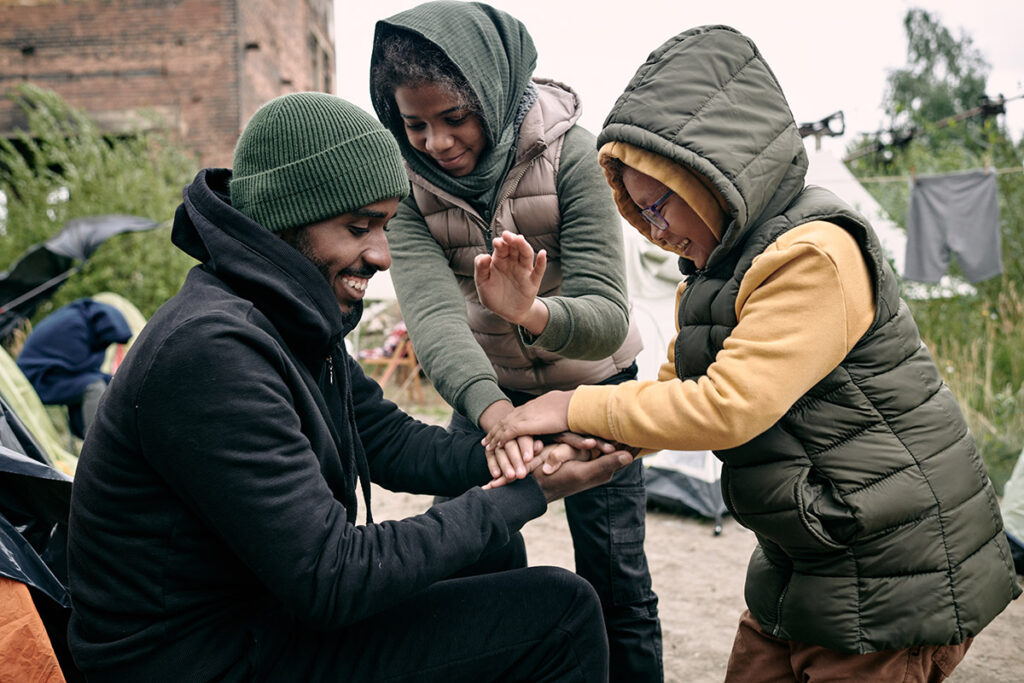Migrant, Refugee and Host Communities
Migrant and refugee children are among the most vulnerable populations, suffering from violations of their human rights and experiencing stressful and traumatic conditions that can severely impact their psychosocial well-being.
An integrated response that includes mental health and psychosocial support, can make a difference in children’s lives, contributing to their resilience building and helping them through those challenging times.
Education can play a critical role in enabling children from migrant, refugee and host communities to learn to live together in solidarity. A transformative approach to education can counter hate speech, stigmatization, incitement to discrimination and xenophobia, allowing a new narrative of inclusion, respect and understanding.
Take a look at the main projects we have carried out to support educators in creating a culture of encounter, mutual understanding and solidarity through education.
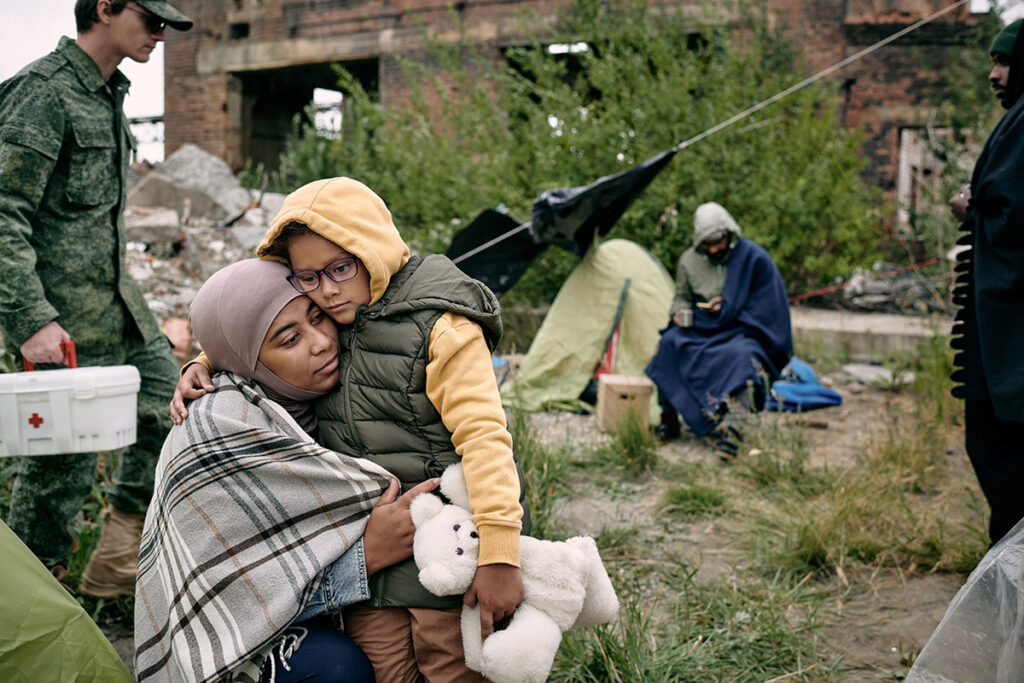
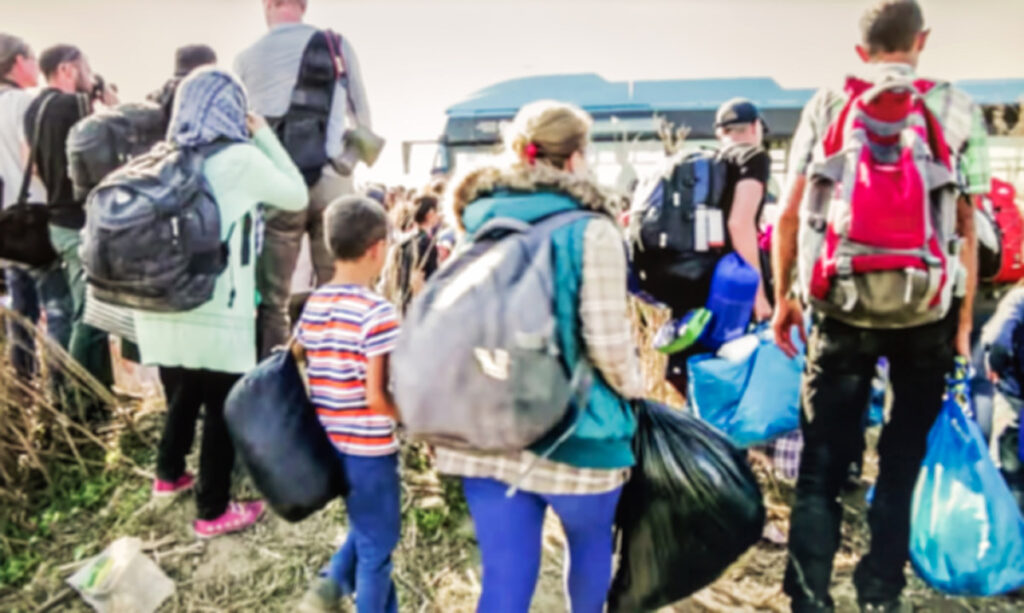
Faith Sensitive Mental Health and Psychosocial Support (MHPSS) to Foster Resilience in Children on the Move
Faith-sensitive MHPSS approaches play a crucial role in promoting the well-being of children on the move.
Every day, children from around the world are being forced to migrate because of conflict, poverty, violence, natural disasters, climate change, discrimination, or lack of access to basic services. Some are moving without their parents or other caregivers, becoming extremely vulnerable to suffering from violations of their human rights and experiencing stressful, traumatic conditions that can have a severe impact on their psychosocial well-being.
Through this project, a booklet was developed building on the exchange of experiences, insights, and emerging practices shared in three online sessions about the effectiveness of faith-inspired psychosocial support frameworks.
The booklet provides concrete recommendations and resources directed to all actors working to promote the mental well-being of children on the move. It also includes advocacy recommendations and promotes solutions to make these interventions more central to the peacebuilding agenda.
This project was developed by Arigatou International, the KAICIID International Dialogue Centre, and World Vision International in the framework of the Sustaining Peace and Health workstreams of the International Partnership on Religion and Sustainable Development (PaRD).
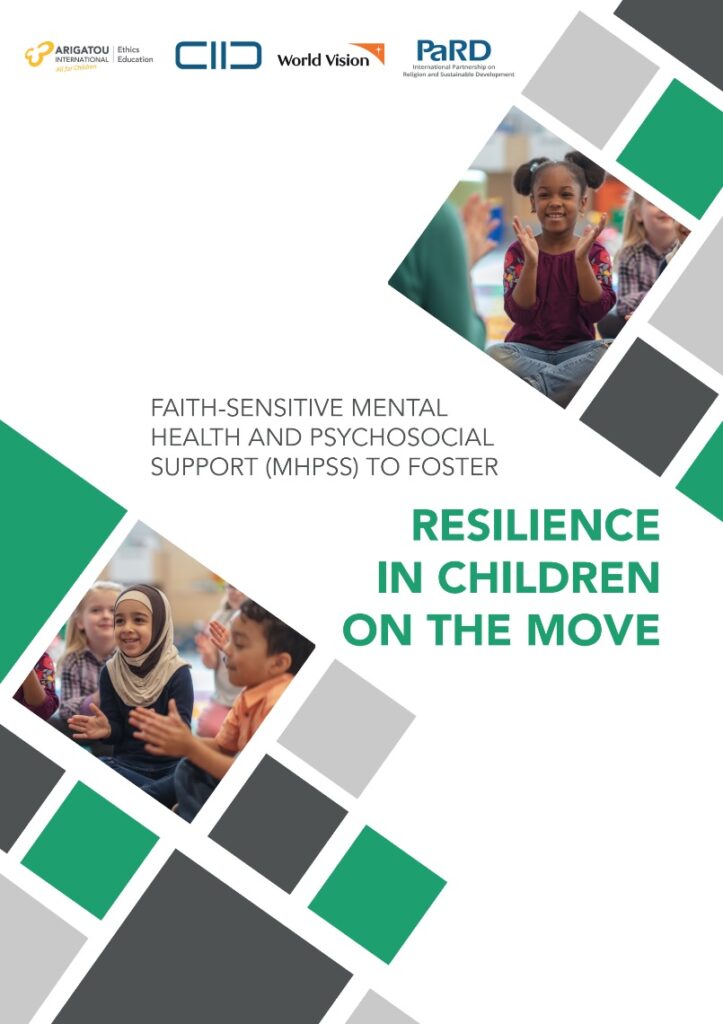
Faith-Sensitive Mental Health and Psychosocial Support to Foster Resilience in Children on the Move
Solidarity
Advancing the Role of Education in Fostering Migrant and Refugee Inclusion in Europe
Ethics education can play a transformative role in enabling children from migrant, refugee, and host communities to learn to live together in solidarity. An inclusive approach to education that values differences can help building bridges of trust, understanding, respect, and solidarity.
Through this project, a practical booklet was developed to contribute to the creation of new narratives of inclusion through education that can increase the possibilities of living harmoniously in plural societies.
The publication builds on the reflections and recommendations collected in a series of three webinars that were organized in 2021 for educators working with children across Europe. It explores a five-element framework for education: ethics education as a transformative pedagogical approach, psychosocial support of children, a whole school and community approach, child-led initiatives, and the training of educators both in formal and non-formal settings.
This program is a collaboration between Arigatou International and SYNYPARXIS and was co-funded by the Network for Dialogue (N4D) micro-grant and the KAICIID Dialogue Centre.
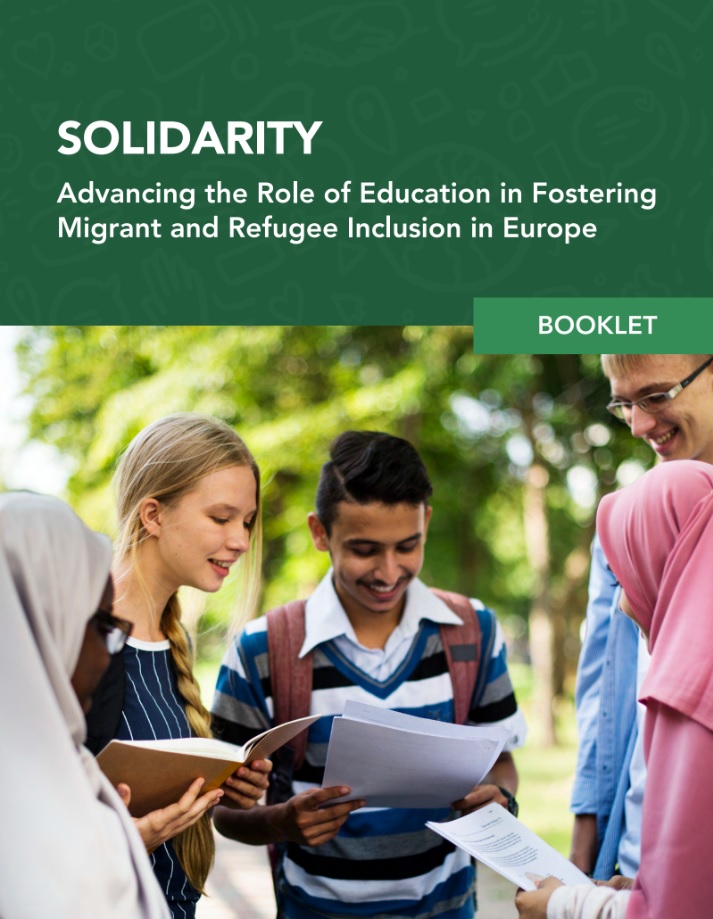
Solidarity: Advancing the Role of Education in Fostering Migrant and Refugee Inclusion in Europe
